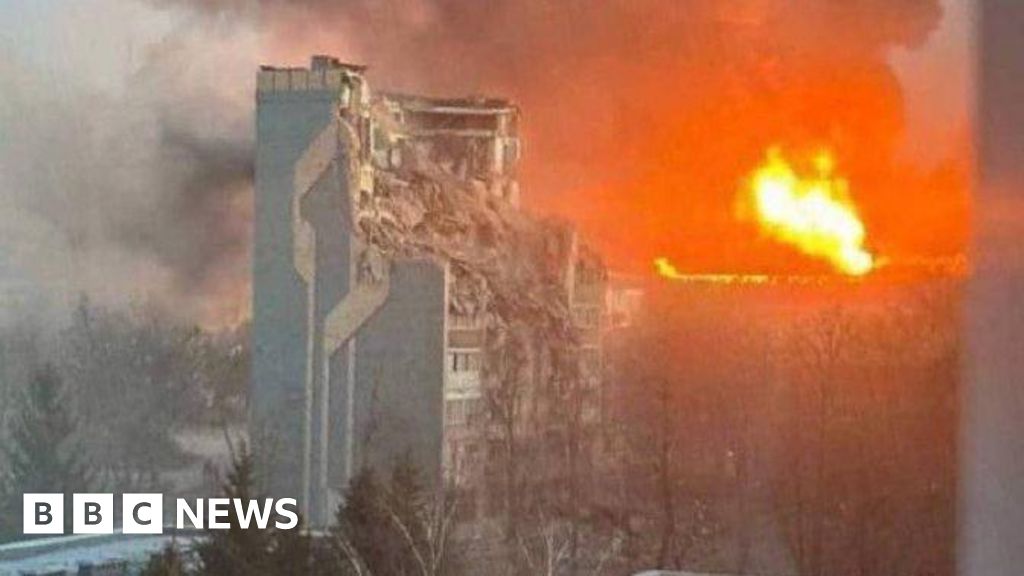Travel disruption is likely for some parts of the UK as a cold snap continues and some areas wake to snowy and icy conditions on Wednesday.
Multiple Met Office yellow warnings are in force for snow and ice on Wednesday, with a more severe amber warning also issued for Thursday.
With cold arctic air across the UK, there are also yellow and amber cold-health alerts from the UK Health Security Agency (UKHSA) until Saturday.
Risks of snow and ice diminish by the weekend as it turns less cold.
An area of rain, sleet and snow moved across the UK overnight into Wednesday morning, leading to some icy patches and some areas waking up to a covering of snow.
The Met Office said "overnight ice could create some particularly tricky travel conditions". The agency has warned that the wintry weather makes driving conditions dangerous, adding that road closures are possible which could leave some vehicles and passengers stranded.
Darren Clark, a severe weather resilience advisor for National Highways - which looks after England's major roads - has urged all drivers to do "quick checks" such as checking lights and tyres so as to "not be caught out".
He added that there are more than 530 gritters available to be called on "when snow hits or conditions demand it".
National Highways is working closely with the Met Office, which has told all drivers to ensure their vehicles are packed with essentials - such as food, clothing and a torch - in the event of any delays.
Bus and train service delays and cancellations are also possible.
Travellers are advised to plan their route, check for any delays, closures or cancellations, and give themselves ample time to prepare and travel.
Hills of Wales, northern England, Northern Ireland and Scotland are forecast to see around 2-5cm (0.8-2in) of accumulating snow, with more on higher ground.
Through Wednesday, parts of south west Wales and south west England will continue to see wintry showers move through, with potential for some disruption due to settling snow over high ground.
There is a risk of some ice on Wednesday too, so there are multiple yellow Met Office weather warnings in force across the UK.
Frequent snow showers will continue in northern and eastern Scotland and north east England throughout Wednesday and into Thursday.
Met Office yellow warnings - valid until 23:59 GMT on Thursday - suggest 2-5cm at low levels, but around 15-20cm of snow is possible over 300m.
The North York Moors and even parts of the Yorkshire Wolds could potentially get up to 25cm by Thursday.
It is here where a more severe Met Office amber warning will come into force from 05:00 to 21:00 GMT on Thursday.
This is likely to cause "substantial disruption" with rural communities being cut off, vehicles becoming stranded and potential for power cuts.
Gusty winds leading to blizzards and thunderstorms - thundersnow - may bring additional hazards.
Wednesday will feel particularly cold with a strong northerly wind.
While temperatures will range from 1-7C, the wind chill will make it feel even colder, especially in eastern parts of the UK.
Yellow cold-health alerts from the UKHSA are in force across the Midlands until 08:00 GMT Saturday.
More severe amber alerts have been issued for North West, North East, Yorkshire and Humber for the same period.
These alerts are mainly for health and social care services, warning of "significant" impacts to more vulnerable members of the community.
Extra demands may be put on services to deal with the colder weather.
Colder weather can lead to excess deaths, particularly for those over 65 or those with health conditions. The UKHSA also warns there may be impacts to some younger age groups too.
Thursday night will be the coldest night this week with temperatures widely falling below zero and down to -12C in rural Scotland.
By Friday and the weekend, it will become less cold as the weather shifts more to an Atlantic influence bringing more cloud and bit of rain and less-cold air.
Temperatures by Saturday will rise slightly to average.
.png)
 2 hours ago
2
2 hours ago
2








 English (US) ·
English (US) ·